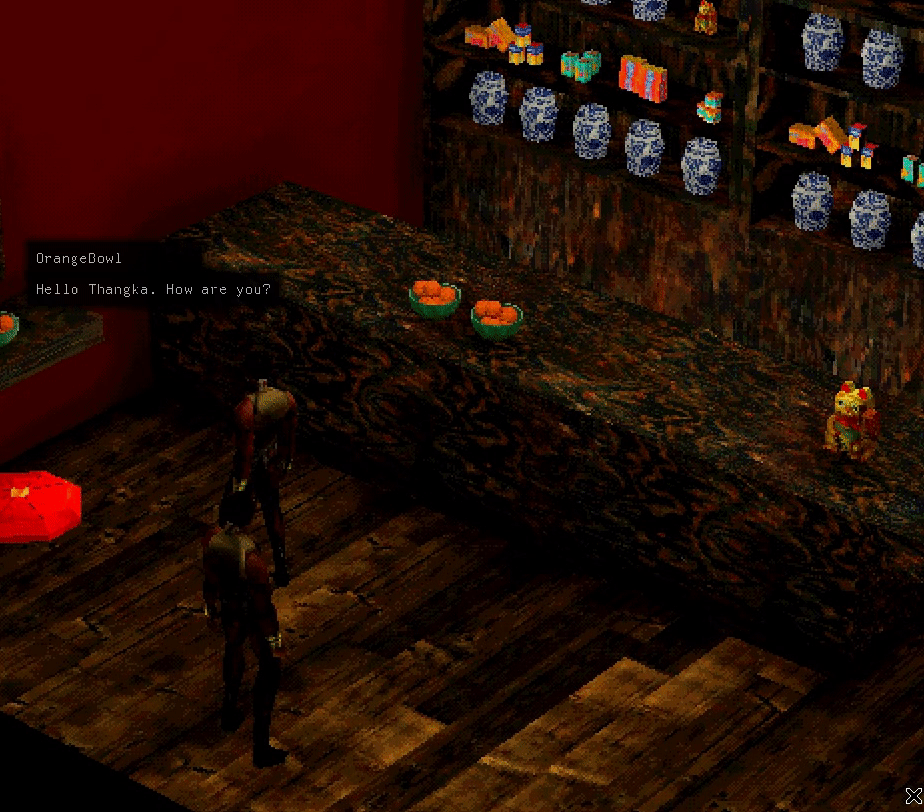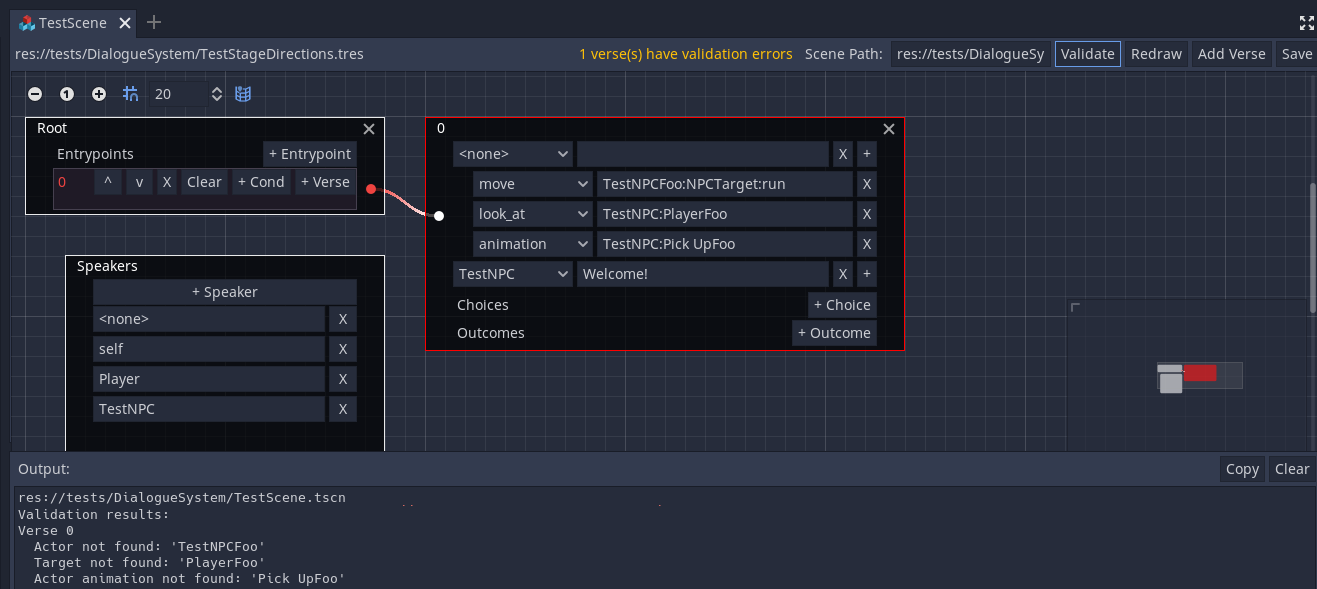Fugue Devlog 11: NPCs and Cut Scenes
I realized I forgot to build out an important part of the dialogue system: “cut scene” support. These aren’t true cut scenes in the sense that they aren’t cinematic sequences; here I’m using the term to describe something more like a play: characters moving around, saying things, with audio and animation triggers. This meant expanding the dialogue system to support “stage directions”, and that required re-writing a few parts.
The implementation also meant that I had to reckon with NPCs. So far the entities engaging in dialogue were just the player and static objects. Of course it’s far more typical that NPCs will be the ones engaging in dialogue. I’d written an Interactable class for things that the player can interact with, but it didn’t capture the necessary functionality for NPCs (such as moving around), so I had to re-write that a bit.
Dialogue advancement got more complicated–I wanted to support chains of stage directions (e.g. walking to a place, turning around, walking to another place, etc), so dialogue timeouts and/or manual dialogue advancement don’t happen until all of the stage direction sequences are finished.
This all required enough changes that everything felt a bit brittle, so I also spent a bit of time refactoring the code a bit.
Here’s a small example of the cutscene system (the moving character is an NPC and the behavior is entirely directed by a dialogue script). The stage directions here are: walk to the designated point, turn to look at the player, then run the “pick up” animation.

Stage directions can be attached to any line in a verse:

Sometimes NPCs should move around etc without saying anything, so I’ve added a special speaker name of <none> for these cases. The general syntax for a stage direction is npc node name:target node name (excluding directions that don’t have an actor, e.g. playing an audio clip). If there are multiple directions for a single actor attached to one verse-line, they’re executed in sequence. If there are directions for multiple actors, they’re executed in parallel. I’m hoping this doesn’t relinquish too much timing control, but who knows at this point.
One problem here is that these are just open-ended text inputs. There’s nothing checking that these actor or target nodes actually exist.
I updated the dialogue editor script validation to now require an associated scene, against which all references of speakers/actors and target nodes are checked against:

That should now cover all the systems that’ll be necessary no matter how the world, narrative, and other game mechanics shape up. Before moving forward with the rest of the development I need to sort those out to figure out what exactly I’ll need.